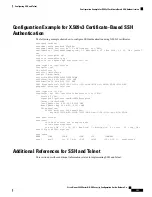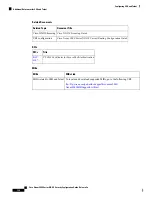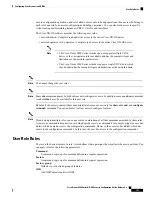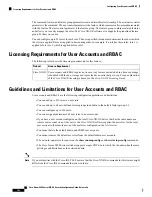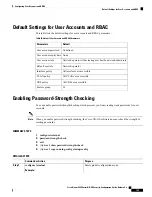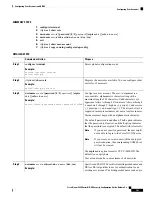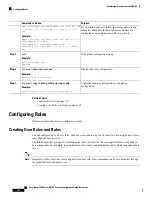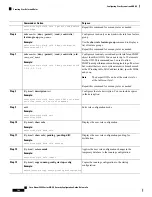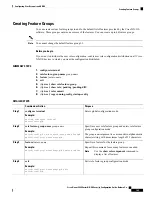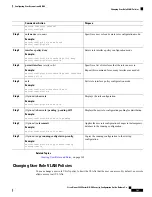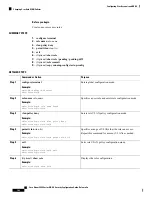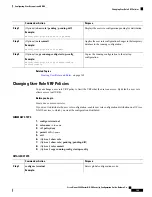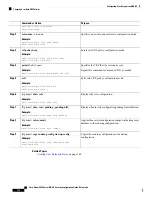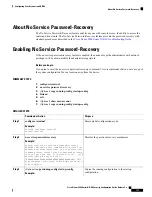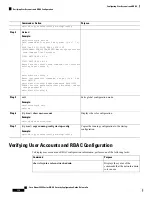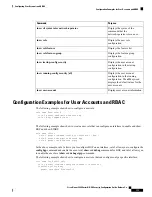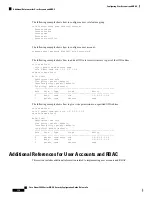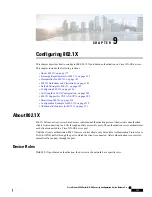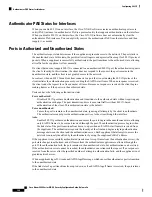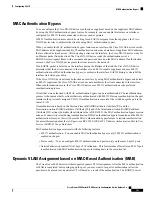
Purpose
Command or Action
switch# configure terminal
switch(config)#
Specifies a user role and enters role configuration mode.
role name role-name
Example:
Step 2
switch(config)# role name UserA
switch(config-role)#
Enters role interface policy configuration mode.
interface policy deny
Step 3
Example:
switch(config-role)# interface policy deny
switch(config-role-interface)#
Specifies a list of interfaces that the role can access.
permit interface interface-list
Step 4
Example:
Repeat this command for as many interfaces as needed.
switch(config-role-interface)# permit interface
ethernet 2/1-4
Exits role interface policy configuration mode.
exit
Example:
Step 5
switch(config-role-interface)# exit
switch(config-role)#
Displays the role configuration.
(Optional)
show role
Example:
Step 6
switch(config-role)# show role
Displays the user role configuration pending for distribution.
(Optional)
show role
{
pending
|
pending-diff
}
Example:
Step 7
switch(config-role)# show role pending
Applies the user role configuration changes in the temporary
database to the running configuration.
(Optional)
role commit
Example:
Step 8
switch(config-role)# role commit
Copies the running configuration to the startup
configuration.
(Optional)
copy running-config startup-config
Example:
Step 9
switch(config-role)# copy running-config
startup-config
Related Topics
, on page 162
Changing User Role VLAN Policies
You can change a user role VLAN policy to limit the VLANs that the user can access. By default, a user role
allows access to all VLANs.
Cisco Nexus 9000 Series NX-OS Security Configuration Guide, Release 9.x
167
Configuring User Accounts and RBAC
Changing User Role VLAN Policies

